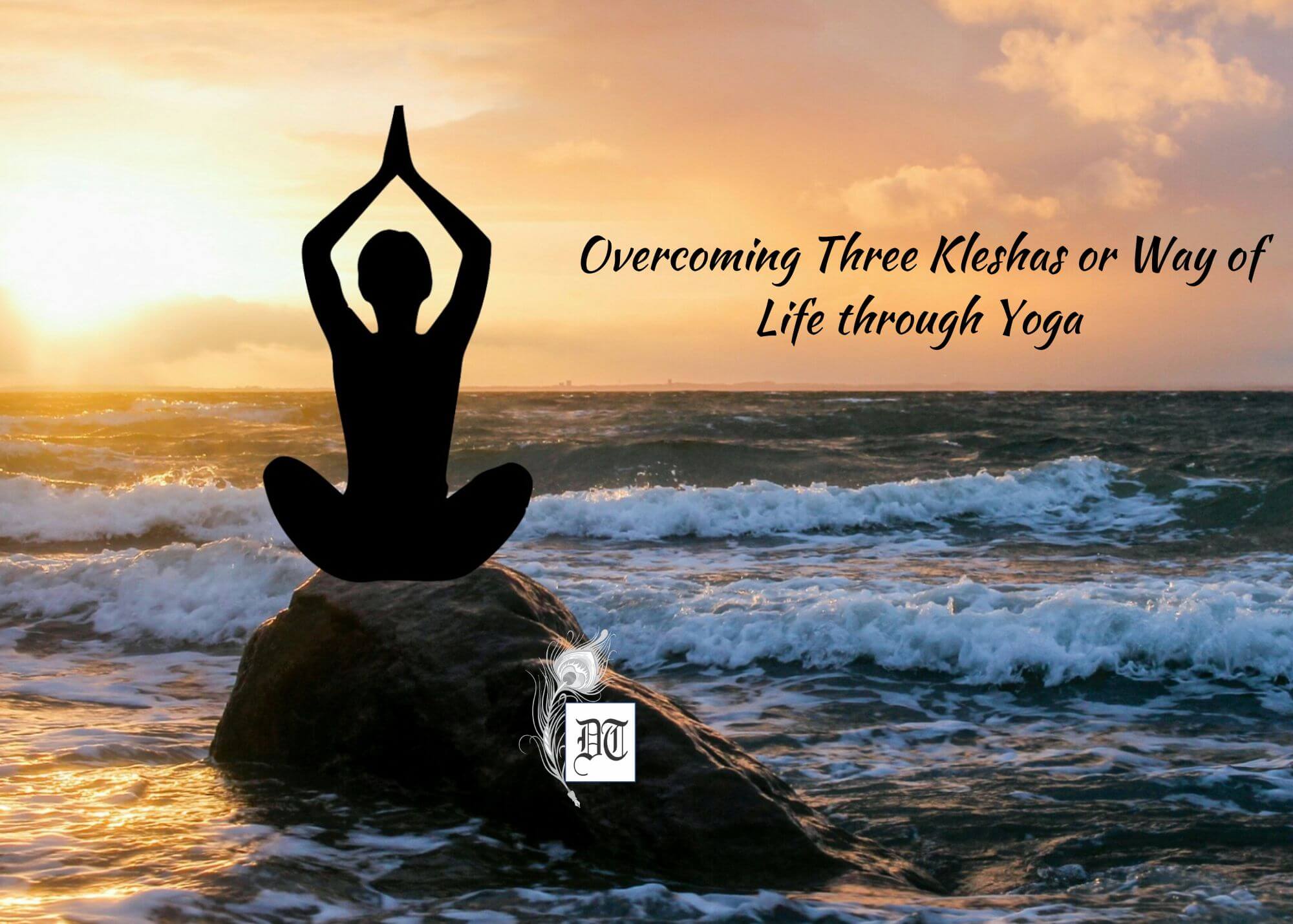Physically you are subject to the afflictions of hunger pangs, thirst, and fatigue, heat, and cold while mentally, emotionally and sentimentally, you are always subject to the affliction of varying states of mind. Yoga philosophy says that this is an unnatural condition. You are not a creature subject to such afflictions. However, your experience contradicts the possible validity or truth of this fine philosophy. Your experience is directly the contrary of what Yoga philosophy says about you. Our Yoga expert and Associate Editor, Navodita, helps us reconcile the contradictions, in the weekly column, exclusively in Different Truths.
We discussed Yama and Niyama and the importance of following Ashtanga Yoga for a healthy body, life, and spirit. The philosophy of Yoga puts forward, in non-technical or metaphysical terms, the view that you are essentially an all-perfect entity totally free from any imperfection and not subject to any undesirable, imperfect, negative experience whatsoever.
Various sentiments and emotions bother you and disturb you, throw you out of gear and make you restless. They have the power to agitate you, to make you feel distressed. Unfulfilled desire, anger, a little failure on the part of someone to show respect to you, unkindness from someone, some sharp word from someone, or the failure on the part of someone to recognise your presence – all these immediately put you in a turmoil. Thus, physically you are subject to the afflictions of hunger pangs, thirst, and fatigue, heat, and cold while mentally, emotionally and sentimentally, you are always subject to the affliction of varying states of mind. Yoga philosophy says that this is an unnatural condition. You are not a creature subject to such afflictions. You are not a being who is supposed to have any such distressing conditions. You are above them, you are beyond them, and you are really free from them. They do not actually form a part of your actual, true nature. However, your experience contradicts the possible validity or truth of this fine philosophy. Your experience is directly the contrary of what Yoga philosophy says about you.
Yoga philosophy says that you are free from all these things. You have no afflictions – no hunger, no thirst, no sleep, no fatigue. You are a being full of perfection, complete in yourself, lacking nothing, full of joy, full of peace, full of bliss. The only way of putting an end to this problem, of bringing about a cessation of this hotchpotch of ever-changing experience – pleasant, unpleasant and neutral – is once again to regain your isolation, to go back to your normal, native, pristine position, where you are not associated with any other factor, where you are independent. In that pristine state, you are yourself as you are, you eternally are, independent of any other factor, grandly isolated, free from any other association. If you regain that state which is your normal state, native state – now you are in an abnormal state – then all problems vanish. So when this association with the daily mundane troubles you, to put an end to it, there is only one way and that is the right royal way – stop this association, terminate this association with the imperfect world, and be yourself. Establish yourself in your pristine position once again. This is the philosophical thesis which is the basis of the science of Yoga.
That is what the science of Yoga is concerned about – how to give back to you your independence, how to give back to you once again that pristine state in which you are always there – that is the real subject-matter of Yoga. Most human beings are constantly engaged in an endless struggle of warding off painful experiences, of keeping at bay experiences that are distressing, that cause discomfort and inconvenience. We cannot say that human activity is in a large measure anything creative, anything gainful. It is mostly negative. It is neither constructive nor creative, neither gainful nor really meaningful. But it is seen to be petty, Alpa. The Upanishad calls it Alpa. Constantly you are engaged in a never-ending process of trying to ward off painful experiences, try to get rid of suffering and pain, that which it does not want. “Dukham Ma Bhuyat” – Let no sorrow befall.
When you consider this aspect of human activity and endeavor, you find that it is not so much an original activity, due to human will or human initiative, but something forced upon the human individual. Advaita Vedanta uses the term ‘Maya’ also with reference to this phenomenal nature and the Gita gives a certain extent of information, a certain hint that this Prakriti is made out of three Gunas (qualities) – Sattva, Rajas, and Tamas. An urge to activity, a constant restlessness, a tendency to movement, was the effect of the Rajas in the human being. Everything ugly, negative, anti-social and destructive was the result of the manifestation of Tamas inside us. Everything beautiful, sublime, elevating, refined and subtle was seen to ebb the effect of the manifestation of theSattva. Bhagavad Gita, which is both Brahma Vidya and Yoga Shastra, says that sometimes Sattva predominates overriding Tamas and Rajas, sometimes Rajas dominates overriding Tamas and Sattva, and sometimes Tamas predominates overriding Sattva and Rajas.
Along with these, there is yet another factor that is an important factor that plays a significant role in shaping one’s life – the pre-acquired condition or ‘Swabhava’. In fact, Swabhava will never change in a person. The foundation will never change. One can go on altering the building, the superstructure, demolishing and remodeling on all that, but the foundation is unalterably there, upon which only remodeling will have to be done. So the foundational aspect of your involvement in the Self is primary.
When you meditate you actually dig in deep inside your true nature so you may find yourself at peace with yourself and, thus, your surroundings. So the end result of all forms of meditation is to find yourself and rejuvenate your own inner being, your independent entity.
©Navodita Pande
Photos from the internet.
#HolisticHealth #Wellness #Yoga #HarmonyWithNature #RejuvenateOurselves #FindTrueSelf #DifferentTruths










 By
By